Fact:
On April 3, 2017, the day Vladimir Putin was due to visit the city, a suicide bombing was carried out in the St. Petersburg metro, killing 15 people and injuring 64. An al-Qaeda affiliate, Imam Shamil Battalion, claimed responsibility.
Mullah Abdul Ghani Baradar is the U.N.-designated co-founder of the Taliban movement. During the Taliban’s first reign in Afghanistan, Baradar served as deputy defense minister where he headed the group’s military affairs section.“ABDUL GHANI BARADAR ABDUL AHMAD TURK,” United Nations Security Councill, February 23, 2001, https://www.un.org/securitycouncil/sanctions/1988/materials/summaries/individual/abdul-ghani-baradar-abdul-ahmad-turk. Following the Taliban’s takeover of the Afghan government on August 15, 2021, it was suspected that Baradar would serve as the president of the new Taliban government.Hugh Tomlinson, “Abdul Ghani Baradar: Taliban leader never lost faith in ‘ultimate victory’,” The Times, August 16, 2021, https://www.thetimes.co.uk/article/abdul-ghani-baradar-taliban-leader-never-lost-faith-in-ultimate-victory-vmxnkr6xk. However, on September 7, it was announced that Baradar will serve as co-deputy prime minister—along with Mullah Muhammad Hassan—of the Taliban’s caretaker government.Matthieu Aikins and Jim Huylebroek, “Taliban Appoint Stalwarts to Top Government Posts,” New York Times, September 7, 2021, https://www.nytimes.com/2021/09/07/world/asia/taliban-women-protest-kabul-afghanistan.html.
When Baradar was a teenager in the 1980s, he befriended the well-known spiritual leader Mullah Mohammed Omar. The two were members of the Pakistani-trained, anti-Soviet mujahideen, where they staged hit-and-run raids on Russian forces.Amy Kazmin, “Abdul Ghani Baradar, a founding father of the Taliban, returns home,” Financial Times, August 21, 2021, https://www.ft.com/content/a895adc1-3268-4387-8a11-5022768c6b47. When the Red Army was driven out of the country in 1989, Omar and Baradar formed a madrassa, the basis for the Taliban.Hugh Tomlinson, “Abdul Ghani Baradar: Taliban leader never lost faith in ‘ultimate victory’,” The Times, August 16, 2021, https://www.thetimes.co.uk/article/abdul-ghani-baradar-taliban-leader-never-lost-faith-in-ultimate-victory-vmxnkr6xk.
Under Omar’s leadership, Baradar helped found the Taliban movement in Kabul in 1994. Baradar quickly proved to be a competent operative, and soon established himself as a military strategist and commander.“Profile: Mullah Abdul Ghani Baradar,” BBC News, September 21, 2013, https://www.bbc.com/news/world-asia-20582286. The Taliban, whose members were predominantly comprised of Pashtun tribesmen who fought with the mujahideen, quickly consolidated power by force throughout Afghanistan, and in 1996, seized control of the capital, Kabul.“Afghan Taliban,” National Counterterrorism Center, https://www.dni.gov/nctc/groups/afghan_taliban.html. During their reign, the Taliban enforced a strict code of sharia (Islamic law) and harbored al-Qaeda and other jihadist organizations. The Taliban, who refer to their domain as the “Islamic Emirate of Afghanistan,” also received financial support from Saudi Arabia and Pakistan, especially the latter’s Inter-Services Intelligence (ISI) agency during this time.Carlotta Gall, “Saudis Bankroll Taliban, Even as King Officially Supports Afghan Government,” New York Times, December 6, 2016, https://www.nytimes.com/2016/12/06/world/asia/saudi-arabia-afghanistan.html. The Taliban-run government in Afghanistan was recognized by only three countries: Pakistan, Saudi Arabia, and the United Arab Emirates (UAE).“Who are the Taliban?,” BBC News, August 18, 2021, https://www.bbc.com/news/world-south-asia-11451718.
Under the Taliban regime, Baradar eventually rose to the role of deputy defense minister where he headed the Taliban military affairs section. Given his standing in the Taliban regime, the U.N. Security Council sanctioned Baradar on February 23, 2001.“ABDUL GHANI BARADAR ABDUL AHMAD TURK,” United Nations Security Councill, February 23, 2001, https://www.un.org/securitycouncil/sanctions/1988/materials/summaries/individual/abdul-ghani-baradar-abdul-ahmad-turk.
While the Taliban hosted al-Qaeda, Osama bin Laden’s group ran training camps and planned and executed numerous terrorist attacks, including the multiple airplane hijackings and strikes against the United States on September 11, 2001. In the aftermath of 9/11, the Taliban rejected a U.S. ultimatum to turn over bin Laden and kick out al-Qaeda. In response, the U.S. and allied countries invaded Afghanistan and swiftly deposed the Taliban government.“Taliban are back - what next for Afghanistan?,” BBC News, August 18, 2021, https://www.bbc.com/news/world-asia-49192495. After being driven out of Kabul, the Taliban operated as an insurgent force in both Afghanistan and Pakistan, attempting to expel NATO forces from Afghanistan and defeat the democratically elected Afghan government.David Zucchino, “The War in Afghanistan: How It Started and How It Is Ending,” New York Times, August 23, 2021, https://www.nytimes.com/article/afghanistan-war-us.html.
A key Taliban operative, Baradar reportedly commanded the insurgency and its funding. Despite the violence carried out by the insurgent group, Baradar was known as a patient and astute political leader who was open to peace dialogues with Washington and the Afghan government.Hugh Tomlinson, “Abdul Ghani Baradar: Taliban leader never lost faith in ‘ultimate victory’,” The Times, August 16, 2021, https://www.thetimes.co.uk/article/abdul-ghani-baradar-taliban-leader-never-lost-faith-in-ultimate-victory-vmxnkr6xk. However, given Baradar’s role in inciting the Afghan war, he remained a threat to international forces. Baradar was captured in a joint U.S.-Pakistani raid in Karachi in February 2010, allowing the more radical leaders of the Taliban to direct the trajectory of future peace negotiations.Kathy Gannon, “Mullah’s rise charts Taliban’s long road back to power,” Associated Press, August 18, 2021, https://apnews.com/article/afghanistan-taliban-abdul-ghani-baradar-e80165eb6c65fc7ea8fae50212ba56c8.
Baradar remained under the radar until 2012, when his name topped the list of Taliban prisoners the Afghan government wanted released in order to encourage peace talks between the Taliban and the Afghan government.Kevin Sieff and Joshua Partlow, “A once-vanquished insurgent returns as Afghanistan’s likely next leader,” Washington Post, August 17, 2021, https://www.washingtonpost.com/world/asia_pacific/baradar-taliban-leader-afghanistan/2021/08/17/d8485398-ff83-11eb-a664-4f6de3e17ff0_story.html; “Profile: Mullah Abdul Ghani Baradar,” BBC News, September 21, 2013, https://www.bbc.com/news/world-asia-20582286. However, Baradar remained in a Pakistani prison until his release in 2018. The U.S. requested to free Baradar as Zalmay Khalizad, then U.S. President Trump’s Afghan peace envoy, claimed Baradar would be beneficial in brokering a peace agreement between the Taliban and the United States in Qatar.Hugh Tomlinson, “Abdul Ghani Baradar: Taliban leader never lost faith in ‘ultimate victory’,” The Times, August 16, 2021, https://www.thetimes.co.uk/article/abdul-ghani-baradar-taliban-leader-never-lost-faith-in-ultimate-victory-vmxnkr6xk.
After his release, Baradar served as the head of the Taliban’s political office in Doha, the insurgent group’s informal embassy.Jessica Donati and Margherita Stancati, “A Taliban Leader Emerges: Hunted, Jailed and Now Free,” Wall Street Journal, August 16, 2021, https://www.wsj.com/articles/a-taliban-leader-emerges-hunted-jailed-and-now-free-11629154710. Baradar led the Taliban’s negotiating team in Qatar, and after several rounds of dialogues, signed the Doha agreement with the United States on February 29, 2020.Kathy Gannon, “Mullah’s rise charts Taliban’s long road back to power,” Associated Press, August 18, 2021, https://apnews.com/article/afghanistan-taliban-abdul-ghani-baradar-e80165eb6c65fc7ea8fae50212ba56c8. The terms of the agreement stated that the United States would draw its forces down to 8,600 from 13,000 in the next three to four months, with the remaining U.S. forces withdrawing in 14 months. In exchange, the Taliban agreed to renounce al-Qaeda and prevent al-Qaeda and other groups from using Afghanistan as a base for terrorism against the United States. The Taliban also agreed to negotiate a permanent ceasefire with other Afghan militants and the Afghan government.Asad Hashim, “Pakistan warns US of ‘spoilers’ on US-Taliban deal in Afghanistan,” Al Jazeera, March 1, 2020, https://www.aljazeera.com/news/2020/03/pakistan-warns-spoilers-taliban-deal-afghanistan-200302093650382.html; Matthew Lee and Kathy Gannon, “US and Taliban sign deal aimed at ending war in Afghanistan,” Associated Press, February 29, 2020, https://apnews.com/491544713df4879f399d0ff5523d369e; “Susannah George and Dan Lamothe, “Afghan government objects to elements of U.S.-Taliban peace deal,” Washington Post, March 1, 2020, https://www.washingtonpost.com/world/asia_pacific/afghan-government-questions-aspects-of-us-taliban-peace-deal/2020/03/01/0a973228-5a68-11ea-8efd-0f904bdd8057_story.html.
On August 6, 2021, the Taliban began an offensive against major Afghan cities with the seizure of Zaranj, capital of Nimruz province.Susannah George and Ezzatullah Mehrdad, “Taliban fighters overrun an Afghan provincial capital for the first time since withdrawal of foreign forces,” Washington Post, August 6, 2021, https://www.washingtonpost.com/world/2021/08/06/afghanistan-taliban-nimruz/. By August 13, the Taliban controlled 17 of Afghanistan’s 34 provincial capitals and more than two-thirds of the country.Rahim Faiez, and Joseph Krauss, “Taliban sweep across Afghanistan’s south; take 4 more cities,” Associated Press, August 13, 2021, https://apnews.com/article/middle-east-taliban-c6c8d4a41c554f36031a8131538d1402. On August 15, Afghan President Ashraf Ghani fled Afghanistan and thousands of Afghans poured into Kabul’s airport as Taliban fighters entered the city. By August 16, the Taliban laid siege to the presidential palace and took complete control of Kabul, after which the Taliban declared the war in Afghanistan had ended.“Taliban declares ‘war is over’ as president and diplomats flee Kabul,” Reuters, August 15, 2021, https://www.reuters.com/world/asia-pacific/talibans-rapid-advance-across-afghanistan-2021-08-10/. The Taliban has claimed that it would take on a more “moderate” approach in their ruling of the country, and that women are allowed to have roles in public life in observance of “Islamic law.”“Factbox: Taliban seek to present a moderate face as they take control in Afghanistan,” Reuters, August 15, 2021, https://www.reuters.com/world/asia-pacific/taliban-seek-present-moderate-face-they-take-control-afghanistan-2021-08-15/. The United States remained committed to full withdrawal from Afghanistan by August 30, 2021. However, the evacuation of American citizens, U.S. personnel, and highly vulnerable Afghans was chaotic. By the evening of August 30, 123,000 people were evacuated from Kabul.Amanda Macias, “Biden says Afghanistan evacuation on track to finish by Aug. 31 deadline as threats to Kabul airport grow,” CNBC, August 24, 2021, https://www.cnbc.com/2021/08/24/biden-sticks-to-aug-31-afghanistan-withdrawal-deadline.html; Sally Lockwood, “Afghanistan: Taliban warns there will be 'consequences' if Biden delays withdrawal of US troops,” August 24, 2021, https://news.sky.com/story/afghanistan-taliban-warns-there-will-be-consequences-if-biden-delays-withdrawal-of-us-troops-12388436; Philip Bump, “Those six-figure Kabul evacuation numbers veil the limits of the U.S. response,” Washington Post, August 30, 2021, https://www.washingtonpost.com/politics/2021/08/30/us-afghanistan-evacuation-numbers/.
Following the Taliban’s takeover of the Afghan government, on August 17, Baradar flew from Doha to Kandahar, where he will reportedly serve as the leader of the Taliban government.Mychael Schnell, “Taliban leader arrives in Afghanistan,” The Hill, August 17, 2021, https://thehill.com/policy/international/568180-de-facto-taliban-leader-arrives-in-afghanistan?rl=1. On August 23, 2021, CIA Director William Burns met with Baradar in Kabul—the first high level meeting between the Biden administration and the Taliban since the August 15 takeover.Greg Myre, “CIA Chief And Taliban Leader Meet As Taliban Demand Aug. 31 U.S. Withdrawal,” NPR, August 24, 2021, https://www.npr.org/2021/08/24/1030601056/cia-director-meets-taliban-leader-as-deadline-for-u-s-evacuation-looms.
On September 7, 2021, the Taliban announced the official appointments within their caretaker government. Mullah Muhammad Hassan was named prime minister, and Baradar was named co-deputy prime minister along with Mawlawi Abdul Salam Hanafi. The government is exclusively male, with many positions filled with veterans from their hardline movement in the early nineties.Matthieu Aikins and Jim Huylebroek, “Taliban Appoint Stalwarts to Top Government Posts,” New York Times, September 7, 2021, https://www.nytimes.com/2021/09/07/world/asia/taliban-women-protest-kabul-afghanistan.html; Kathy Gannon, “Taliban form all-male Afghan government of old guard members,” Associated Press, September 8, 2021, https://apnews.com/article/middle-east-pakistan-afghanistan-arrests-islamabad-d50b1b490d27d32eb20cc11b77c12c87.
Shortly after the appointments were made, on September 14, 2021, rumors began to surface that Baradar was allegedly injured following disputes between the Taliban and the Haqqani network—the U.S. designated, and allegedly more radical, branch of the Taliban. Baradar quickly refuted those claims in a television interview on September 15, while also denying any internal disagreements.Tim Lister, “Where are the Taliban's missing leaders? Rumors swirl over fate of two top officials,” CNN, September 14, 2021, https://www.cnn.com/2021/09/14/asia/taliban-missing-leader-rumors-2021-intl/index.html; Sarah Dean, “Taliban co-founder disputes internal rifts, denies he was injured in any clash,” CNN, September 15, 2021, https://www.cnn.com/2021/09/15/asia/afghanistan-taliban-baradar-disputes-rift-intl/index.html.
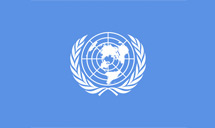
The U.N. Security Council sanctioned Abdul Ghani Baradar Abdul Ahmad Turk on February 23, 2001.“ABDUL GHANI BARADAR ABDUL AHMAD TURK,” United Nations Security Councill, February 23, 2001, https://www.un.org/securitycouncil/sanctions/1988/materials/summaries/individual/abdul-ghani-baradar-abdul-ahmad-turk.

Mawlavi Talib is a high-ranking member of the Taliban, serving as the group’s “shadow” deputy governor of Helmand province.Alan Cullison and Saeed Shah, “Taliban Commander Who Led Attack on Afghan City Was Released From Prison Last Year, Officials Say,” Wall Street Journal, August 3, 2021, https://www.wsj.com/articles/taliban-commander-who-led-attack-on-afghan-city-was-released-from-prison-last-year-officials-say-11628010527. Talib is the commander leading the August 2021 assault on Lashkargah, one of several Afghan cities falling to the control of the Taliban in the midst of the full withdrawal of U.S. combat troops from the country.“Taliban commander leading Lashkar Gah onslaught was part of US-brokered prisoner release,” Arab News, August 5, 2021, https://www.arabnews.com/node/1905721/amp.
Talib allegedly served for years under the Taliban commanding militants in Helmand before being promoted to “shadow” deputy governor in the province. The province is particularly known for poppy cultivation and the narcotics trade, which has funded the Taliban for decades. Given the financial importance of the province, the area is prone to heavy fighting between the Taliban and U.S. and British forces.Alan Cullison and Saeed Shah, “Taliban Commander Who Led Attack on Afghan City Was Released From Prison Last Year, Officials Say,” Wall Street Journal, August 3, 2021, https://www.wsj.com/articles/taliban-commander-who-led-attack-on-afghan-city-was-released-from-prison-last-year-officials-say-11628010527. According to media sources, Talib is an aggressive Taliban fighter who has launched assaults against the British troops in Helmand for years.Hugh Tomlinson, Humayoon Babur and Haroon Janjua, “Taliban commander laying siege to Lashkar Gah was freed from jail in US deal,” The Times, August 4, 2021, https://www.thetimes.co.uk/article/leave-lashkar-gah-before-we-attack-taliban-afghan-civilians-warned-86l7dht7j.
At some point in 2020, Talib was arrested in Sangin after being spotted by Afghan security forces as he tried to slip through a security checkpoint. Talib was then detained in Bagram prison, outside of Kabul.Ben Farmer, “Taliban commander on brink of capturing Afghan city was freed in US-led prisoner swap,” Telegraph, August 4, 2021, https://www.telegraph.co.uk/world-news/2021/08/04/taliban-commander-brink-capturing-afghan-city-freed-last-year/; Mujib Mashal and Fatima Faizi, “Afghan Peace Talks Set to Begin as Prisoner Swap Is Nearly Done,” New York Times, October 5, 2020, https://www.nytimes.com/2020/09/03/world/asia/afghanistan-taliban-prisoners.html. On September 3, 2020, Talib was one of 5,000 prisoners released by the Afghan government.Mujib Mashal and Fatima Faizi, “Afghan Peace Talks Set to Begin as Prisoner Swap Is Nearly Done,” New York Times, October 5, 2020, https://www.nytimes.com/2020/09/03/world/asia/afghanistan-taliban-prisoners.html. In a February 2020 agreement between the Taliban and the United States, the U.S. agreed to secure the release of 5,000 prisoners held by the Afghan government in exchange for the initiation of direct peace talks between the Afghan government and the Taliban.Mujib Mashal, “Taliban and U.S. Strike Deal to Withdraw American Troops From Afghanistan,” New York Times, February 29, 2020, https://www.nytimes.com/2020/02/29/world/asia/us-taliban-deal.html. However, upon his release, despite signing a promise to not engage in fighting with the government, Talib returned to the battlefield to join the Taliban in a countrywide offensive that has taken over half of the country’s remote districts.Alan Cullison and Saeed Shah, “Taliban Commander Who Led Attack on Afghan City Was Released From Prison Last Year, Officials Say,” Wall Street Journal, August 3, 2021, https://www.wsj.com/articles/taliban-commander-who-led-attack-on-afghan-city-was-released-from-prison-last-year-officials-say-11628010527.
The Afghan government has not been able to adequately counter the insurgents and has been faced with ongoing fighting only made more difficult by the impeding withdrawal of all U.S. combat troops by September 11, 2021—the 20th anniversary of the fatal terrorist attacks on U.S. soil.Helene Cooper, Thomas Gibbons-Neff and Eric Schmitt, “Biden to Withdraw All Combat Troops From Afghanistan by Sept. 11,” New York Times, July 24, 2021, https://www.nytimes.com/2021/04/13/us/politics/biden-afghanistan-withdrawal.html.
On August 3, 2021, under Talib’s command, hundreds of Taliban fighters launched an attack on Lashkargah, the capital of Helmand province. Talib and the fighters, which he reportedly collected from Helmand and surrounding provinces, specifically targeted Lashkargah’s prison to release and potentially recruit inmates for the insurgency. Despite heavy U.S. airstrikes and a counterattack by U.S.-trained Afghan commands, Talib’s insurgent outfit managed to continue their offensive onto the provincial capital.Alan Cullison and Saeed Shah, “Taliban Commander Who Led Attack on Afghan City Was Released From Prison Last Year, Officials Say,” Wall Street Journal, August 3, 2021, https://www.wsj.com/articles/taliban-commander-who-led-attack-on-afghan-city-was-released-from-prison-last-year-officials-say-11628010527.

Abu Abdullah ibn Umar al-Barnawi, better known as Ba Idrisa, was the U.S.-designated former leader of Islamic State in West Africa Province (ISWAP), a splinter group of Boko Haram. The U.S. Department of State designated Ba Idrisa as a Specially Designated Global Terrorist on September 10, 2019.“Designation of Abu Abdullah ibn Umar al-Barnawi as a Specially Designated Global Terrorist,” Federal Register, September 19, 2019, https://www.federalregister.gov/documents/2019/09/19/2019-20282/designation-of-abu-abdullah-ibn-umar-al-barnawi-as-a-specially-designated-global-terrorist. Following internal disputes within ISWAP, Ba Idrisa was executed by ISWAP fighters on February 27, 2020.“Nigeria Security situation,” European Union, June 2021, https://www.justice.gov/eoir/page/file/1405116/download; Elizabeth Pearson and Jacob Zenn, “Boko Haram, the Islamic State, and the Surge in Female Abductions in Southeastern Niger,” International Centre for Counter Terrorism, February 2021, https://icct.nl/app/uploads/2021/02/Pearson-And-Zenn-research-paper.pdf; Bassim Al-Hussaini, ‘Nigeria: ISWAP, Terror Group in Nigeria, Rebrands, Reversing Tradition, All Africa, February 27, 2020, https://allafrica.com/stories/202002270840.html.
Ba Idrisa was a close follower of Muhammed Yusuf—ISWAP’s leader from 2004 until his death by Nigerian security forces in July 2009. Yusuf’s son, Abubakar Shekau, was then appointed leader before being deposed by Abu Musab al-Barnawi, a close confidante of Ba Idrisa, in August 2016.Jacob Zenn, “Boko Haram Factionalization: Who are Islamic State in West Africa Province (ISWAP) Fighters in Niger and Chad?,” Jamestown Foundation, June 14, 2019, https://jamestown.org/program/boko-haram-factionalization-who-are-islamic-state-in-west-africa-province-iswap-fighters-in-niger-and-chad/. Ba Idrisa reportedly questioned Shekau’s interpretation of the Quran, which he believed to be flawed.“Fergus Kelly, “Islamic State enforced leadership change in West Africa province, audio reveals,” Defense Post, March 15, 2019, https://www.thedefensepost.com/2019/03/15/new-islamic-state-west-africa-leader-audio-nigeria/. In February of 2019, ISWAP leader al-Barnawi was reportedly removed as the leader of the jihadist group.“ISIS-backed Boko Haram faction allegedly gets new leader,” Punch, March 5, 2019, https://punchng.com/isis-backed-boko-haram-faction-allegedly-gets-new-leader/; “Deposed Boko Haram leader detained not killed: sources,” France 24, March 15, 2019, https://www.france24.com/en/20190315-deposed-boko-haram-leader-detained-not-killed-sources.
On March 4, 2019, Boko Haram announced that al-Barnawi was demoted to a member of the group’s shura council, and that Ba Idrisa replaced him as leader.Jacob Zenn, “Who is the Leader of ISWAP? – Confusion Continues Over Leadership of Islamic State in West Africa Province,” Jamestown Foundation Militant Leadership Monitor 10, no. 10, November 4, 2019, https://jamestown.org/brief/who-is-the-leader-of-iswap-confusion-continues-over-leadership-of-islamic-state-in-west-africa-province/. The leadership shake-up occurred against the backdrop of larger internal disputes within the organization.Jacob Zenn, “Islamic State in West Africa Province’s Factional Disputes and the Battle With Boko Haram,” The Jamestown Foundation Terrorism Monitor 18, no. 6, March 20, 2020, https://jamestown.org/program/islamic-state-in-west-africa-provinces-factional-disputes-and-the-battle-with-boko-haram/. Allegedly, Ba Idrisa endorsed a more extreme approach compared to his predecessors, and in March 2019, ISWAP incorporated Islamic State in Greater Sahara (ISGS) within the ISWAP umbrella further expanding insurgent operations across Nigeria, Niger, and Chad.“Nigeria Security situation,” European Union, June 2021, https://www.justice.gov/eoir/page/file/1405116/download. Given Ba Idrisa’s role as ISWAP leader, the U.S. Department of State and U.S. Department of the Treasury designated Ba Idrisa as a Specially Designated Global Terrorist and Specially Designated National on September 10, 2019.“Designation of Abu Abdullah ibn Umar al-Barnawi as a Specially Designated Global Terrorist,” Federal Register, September 19, 2019, https://www.federalregister.gov/documents/2019/09/19/2019-20282/designation-of-abu-abdullah-ibn-umar-al-barnawi-as-a-specially-designated-global-terrorist.
In early 2020, infighting within Boko Haram continued and Ba Idrisa, was removed as ISWAP leader.Jacob Zenn, “Islamic State in West Africa Province’s Factional Disputes and the Battle With Boko Haram,” The Jamestown Foundation Terrorism Monitor 18, no. 6, March 20, 2020, https://jamestown.org/program/islamic-state-in-west-africa-provinces-factional-disputes-and-the-battle-with-boko-haram/. According to the Multinational Joint Task Force, the leadership change was the result of an “internal crisis.”Agence France-Presse, “Deposed Boko Haram leader detained not killed: sources,” France 24, March 15, 2019, https://www.france24.com/en/20190315-deposed-boko-haram-leader-detained-not-killed-sources. Ba Idrisa allegedly fell out of favor within the insurgent group after he refused to initiate a campaign that would portray members who abandoned the group as murdtadun, an Islamic reference to apostasy.Bassim Al-Husaini, “Nigeria: ISWAP, Terror Group in Nigeria, Rebrands, Reversing Tradition,” All Africa, February 27, 2020, https://allafrica.com/stories/202002270840.html. According to various intelligence reports, Ba Idrisa was executed by ISWAP fighters on February 27, 2020.“Nigeria Security situation,” European Union, June 2021, https://www.justice.gov/eoir/page/file/1405116/download; Elizabeth Pearson and Jacob Zenn, “Boko Haram, the Islamic State, and the Surge in Female Abductions in Southeastern Niger,” International Centre for Counter Terrorism, February 2021, https://icct.nl/app/uploads/2021/02/Pearson-And-Zenn-research-paper.pdf; Bassim Al-Hussaini, ‘Nigeria: ISWAP, Terror Group in Nigeria, Rebrands, Reversing Tradition, All Africa, February 27, 2020, https://allafrica.com/stories/202002270840.html.
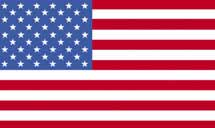
The U.S. Department of State designated Abu Abdullah ibn Umar Al-Barnawi as a Specially Designated Global Terrorist on September 10, 2019.“Designation of Abu Abdullah ibn Umar al-Barnawi as a Specially Designated Global Terrorist,” Federal Register, September 19, 2019, https://www.federalregister.gov/documents/2019/09/19/2019-20282/designation-of-abu-abdullah-ibn-umar-al-barnawi-as-a-specially-designated-global-terrorist.
The U.S. Department of the Treasury designated Abu Abdullah ibn Umar Al-Barnawi as a Specially Designated National on September 10, 2019.“Executive Order Amending Counter Terrorism Sanctions Authorities; Counter Terrorism Designations and Designations Updates; Iran-related Designation; Syria Designations Updates,” United States Department of the Treasury, September 10, 2019, https://home.treasury.gov/policy-issues/financial-sanctions/recent-actions/20190910.

Helmy al-Gazzar is the reported secretary-general of the Muslim Brotherhood. He replaced previous secretary-general Mahmoud Hussein in September 2020 after Hussein was ousted over accusations of stealing monetary donations to the Brotherhood.“Muslim Brotherhood suffers internal rifts, dismiss Secretary General Mahmoud Hussein,” Egypt Today, September 16, 2020, https://www.egypttoday.com/Article/1/91998/Muslim-Brotherhood-suffers-internal-rifts-dismiss-Secretary-General-Mahmoud-Hussein.
Gazzar is a longtime member of the Brotherhood, a trained pathologist, and member of the Brotherhood’s shura council decision-making body.Sandro Contenta, “Chaos in Tahrir Square is a blow to Egypt’s generals,” Toronto Star, November 24, 2011, https://www.thestar.com/news/world/2011/11/24/chaos_in_tahrir_square_is_a_blow_to_egypts_generals.html. Gazzar previously worked in the Brotherhood’s Giza district, where he participated in a committee to recruit new members by infiltrating all facets of Egyptian society.Kamel Kamel, “Muslim Brotherhood defect reveals ‘Elite Committee’ role,” Egypt Today, October 28, 2018, https://www.egypttoday.com/Article/1/59614/Muslim-Brotherhood-defect-reveals-%E2%80%98Elite-Committee%E2%80%99-role. He was arrested multiple times under the regime of former Egyptian leader Hosni Mubarak.“Muslim Brotherhood leader El-Gazzar released on bail,” Ahram Online, August 24, 2014, https://english.ahram.org.eg/NewsContent/1/0/109113/Egypt/0/AboutUs.aspx. As nationwide protests spread against Mubarak in 2011, Gazzar headed the Brotherhood’s district party office in northern Cairo.Margaret Coker And Summer Said, “Muslim Group Backs Secular Struggle,” Wall Street Journal, January 31, 2011, https://www.wsj.com/articles/SB10001424052748704832704576114132934597622. After Egypt announced its first free parliamentary and presidential elections, Gazzar led the Brotherhood’s Freedom and Justice Party (FJP) list.“Prominent candidates face off in Giza elections,” Daily News Egypt (Cairo), December 14, 2011, https://dailynewsegypt.com/2011/12/14/prominent-candidates-face-off-in-giza-elections. The FJP won the largest number of seats in Egypt’s parliamentary elections in January 2012. “Egypt’s Islamist parties win elections to parliament,” BBC News, January 21, 2012, https://www.bbc.com/news/world-middle-east-16665748. The new parliament set about to redraft Egypt’s constitution, which Gazzar told the Brotherhood’s Ikhwanweb website represented the relationship between state authorities and also between the ruler and the ruled, while guaranteeing the rights of citizens.Hussein Mahmoud, “Dr. Helmi Gazzar: Democracy Will Triumph, Culminating in Writing Constitution,” Ikhwanweb, March 25, 2012, https://www.ikhwanweb.com/article.php?id=29810. The FJP’s Mohammed Morsi won Egypt’s presidential elections in June 2012.David D. Kirkpatrick, “Named Egypt’s Winner, Islamist Makes History,” New York Times, June 24, 2012, http://www.nytimes.com/2012/06/25/world/middleeast/mohamed-morsi-of-muslim-brotherhood-declared-as-egypts-president.html?pagewanted=all. Morsi signed Egypt’s new constitution into law in December 2012 after a national referendum. While Gazzar and other Brotherhood leaders claimed the constitution would protect Egypt’s democracy, critics called the document a betrayal of the revolution that toppled Mubarak because it favored Islamists and did not sufficiently protect the rights of women or Christians.“Egyptian constitution 'approved' in referendum,” BBC News, December 23, 2012, https://www.bbc.com/news/world-middle-east-20829911.
While Morsi’s Egypt maintained its peace treaty with Israel, Gazzar refused to recognize normalization with the Jewish state. In 2013, the Washington Institute for Near East Policy (WINEP) invited Gazzar to attend the Soref Symposium in Washington, D.C., in early May to speak on a panel on the Middle East. WINEP sponsored visas for Gazzar and his assistant, who arrived at Washington’s Ritz-Carlton hotel but checked out of the hotel just before the event began on May 9 without informing WINEP. Gazzar claimed he decided to forgo the conference after he found out Israelis were also attending, though the conference schedule—including Israeli representation—had previously been posted online. Further, Gazzar claimed he paid for the entire cost of attendance, but WINEP alleged it had paid for the hotel stay and business class airfare for Gazzar and his assistant while he had paid only for three meals. Gazzar and his assistant also spent four days in the United States instead of returning directly to Egypt, raising questions at WINEP of how they spent their time.Maya Shwayder, “Flew The Coop: Muslim Brotherhood Official Helmy El-Gazzar A No-Show For Scheduled Appearance In D.C.,” International Business Times, May 11, 2013, https://www.ibtimes.com/flew-coop-muslim-brotherhood-official-helmy-el-gazzar-no-show-scheduled-appearance-dc-1252353. An article in the Washington Free Beacon speculated the Brotherhood itself may have pressured Gazzar to leave the conference.Adam Kredo, “Senior Muslim Brotherhood Official Goes AWOL in D.C.,” Washington Free Beacon, May 9, 2013, https://freebeacon.com/uncategorized/senior-muslim-brotherhood-official-goes-awol-in-d-c/.
Gazzar continued to defend Morsi’s presidency as his popularity declined in his first year. In early 2013, Gazzar called an anti-Morsi petition unconstitutional and, citing FJP polling, claimed the FJP was the most popular party in Egypt.“Egypt’s anti-Morsi signature drive is illegal, unconstitutional: Brotherhood figure,” Ahram Online, May 31, 2013, https://english.ahram.org.eg/NewsContent/1/64/72815/Egypt/Politics-/Egypts-antiMorsi-signature-drive-is-illegal,-uncon.aspx. In late 2012 and early 2013, Morsi and the Brotherhood were accused of encouraging supporters to commit violence against opposition protesters.Abdel-Rahman Hussein, “Egypt violence worsens as five die in Cairo clashes,” Guardian (London), December 6, 2012, https://www.theguardian.com/world/2012/dec/06/egypt-violence-worsens-five-die. On July 2, 2013, Egyptian security forces violently clashed with protesters in Bin al-Sarayat, resulting in the deaths of almost two dozen and the injury of about 220.“Muslim Brotherhood leader El-Gazzar released on bail,” Ahram Online, August 24, 2014, https://english.ahram.org.eg/NewsContent/1/0/109113/Egypt/0/AboutUs.aspx; Abdel-Rahman Hussein, “Egypt violence worsens as five die in Cairo clashes,” Guardian (London), December 6, 2012, https://www.theguardian.com/world/2012/dec/06/egypt-violence-worsens-five-die. The army removed Morsi from office on July 3.Abigail Hauslohner, William Booth, and Sharaf al-Hourani, “Egyptian military ousts Morsi, suspends constitution,” Washington Post, July 3, 2013, http://www.washingtonpost.com/world/egypts-morsi-defiant-under-pressure-as-deadline-looms/2013/07/03/28fda81c-e39d-11e2-80eb-3145e2994a55_story.html. On July 5, Egyptian authorities arrested Gazzar and other Brotherhood leaders on charges of inciting violence in connection with the killing of protesters at the Muslim Brotherhood guidance bureau in Moqattam and Bin al-Sarayat on July 2.Al-Masry Al-Youm, “FJP figure arrested, others transferred to Tora Prison,” Egypt Independent, July 5, 2013, https://egyptindependent.com/fjp-figure-arrested-others-transferred-tora-prison/. Gazzar allegedly spent three months in a single cell.“4 years after coup, Egyptians recall injustice,” Anadolu Agency, August 13, 2017, https://www.aa.com.tr/en/middle-east/4-years-after-coup-egyptians-recall-injustice/883654. He was released on bail in August 2014 with the expectation he would stand trial.Al-Masry Al-Youm, “FJP says Helmy al-Gazzar released,” Egypt Independent, August 24, 2014, https://egyptindependent.com/fjp-says-helmy-al-gazzar-released/; “Muslim Brotherhood leader El-Gazzar released on bail,” Ahram Online, August 24, 2014, https://english.ahram.org.eg/NewsContent/1/0/109113/Egypt/0/AboutUs.aspx. However, Gazzar soon after fled Egypt for Sudan, where he remained as of 2017.“4 years after coup, Egyptians recall injustice,” Anadolu Agency, August 13, 2017, https://www.aa.com.tr/en/middle-east/4-years-after-coup-egyptians-recall-injustice/883654.
The Brotherhood faced a leadership crisis in 2020, which allowed for Gazzar’s rise to the position of secretary-general. On August 28, 2020, Egyptian authorities arrested acting Supreme Guide Mahmoud Ezzat. In September, the Brotherhood dismissed Hussein as its secretary-general over accusations he had stolen monetary donations to the Brotherhood. Gazzar was reportedly named secretary-general later that month. However, the circumstances surrounding Hussein’s ouster contributed to a reported growing lack of faith in the Brotherhood’s leadership among members.“Muslim Brotherhood suffers internal rifts, dismiss Secretary General Mahmoud Hussein,” Egypt Today, September 16, 2020, https://www.egypttoday.com/Article/1/91998/Muslim-Brotherhood-suffers-internal-rifts-dismiss-Secretary-General-Mahmoud-Hussein. Despite news reports of Gazzar’s ascension to the Brotherhood’s leadership, the Brotherhood’s official Ikhwanweb website and its Twitter account made no mention of the leadership change as of the end of June 2021.Ikwanweb homepage, accessed June 30, 2021, https://www.ikhwanweb.com/; Ikhwanweb, Twitter account, accessed June 30, 2021, https://twitter.com/Ikhwanweb.
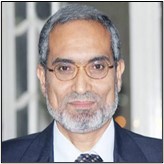
Ousmane Illiassou Djibo, is a U.S.-designated senior leader of ISIS in the Greater Sahara (ISIS-GS). A close affiliate of ISIS-GS leader Adnan Abu Walid al-Sahrawi, Djibo has directed a network of militants targeting westerners and has taken part in numerous attacks on local forces in Niger and the surrounding areas.“State Department Terrorist Designation of Ousmane Illiassou Djibo,” U.S. Department of State, June 28, 2021, https://www.state.gov/state-department-terrorist-designation-of-ousmane-illiassou-djibo/. The U.S. Department of State designated Djibo as a Specially Designated Global Terrorist (SDGT) on June 28, 2021.“State Department Terrorist Designation of Ousmane Illiassou Djibo,” U.S. Department of State, June 28, 2021, https://www.state.gov/state-department-terrorist-designation-of-ousmane-illiassou-djibo/.
Djibo, a native Nigerien, serves as a collaborator and key lieutenant of al-Sahrawi, who operates the group out of the Menaka region in Mali. ISIS-GS, which was designated by the U.S. State Department as a Foreign Terrorist Organization (FTO) in May 2018, was established after al-Sahrawi split from al-Mourabitoun—an al-Qaeda splinter group—and pledged allegiance to ISIS in May 2015. ISIS central acknowledged the pledge in October 2016.“State Department Terrorist Designation of Ousmane Illiassou Djibo,” U.S. Department of State, June 28, 2021, https://www.state.gov/state-department-terrorist-designation-of-ousmane-illiassou-djibo/.
One of the first documented attacks led by Djibo occurred in November 2016, when ISIS-GS militants ambushed Nigerian National Guard soldiers. The attacks killed six soldiers and the militants kidnapped two other soldiers. One hostage was killed, and the other, Abdoul Wahid, managed to escape. During his three-month ordeal, Wahid stated that the group spoke of just seeking to wage jihad, and in particular, killing foreign soldiers. Additionally, Wahid witnessed ISIS-GS—which he estimated had around 1,200 members—recruiting and training children as young as 10. According to Wahid, Djibo did not come across as a believer of Islam, but as a thug.Ruth Maclean, “Niger Islamic State hostage: 'They want to kill foreign soldiers',” Guardian, June 5, 2018, https://www.theguardian.com/world/2018/jun/05/hostage-niger-islamic-state-group-they-want-to-kill-foreign-soldiers#_=_.
The State Department reports that Djibo developed a network of ISIS-GS militants to kidnap and attack westerners in Niger and surrounding areas.“State Department Terrorist Designation of Ousmane Illiassou Djibo,” U.S. Department of State, June 28, 2021, https://www.state.gov/state-department-terrorist-designation-of-ousmane-illiassou-djibo/. Furthermore, Djibo has coordinated and taken part in numerous attacks against local forces. Djibo allegedly gave the order for ISIS-GS fighters to take six Nigerien soldiers hostage following an ambush on Nigerien soldiers near Tongo Tongo, Niger on May 14, 2019. The ambush killed 28 soldiers.“State Department Terrorist Designation of Ousmane Illiassou Djibo,” U.S. Department of State, June 28, 2021, https://www.state.gov/state-department-terrorist-designation-of-ousmane-illiassou-djibo/; “Niger ambush: Militants kill 28 soldiers near Mali,” BBC News, May 16, 2019, https://www.bbc.com/news/world-africa-48286975. Djibo also reportedly led ISIS-GS fighters against the Nigerien Armed Forces (FAN) on July 1, 2019 in Inates, Tillaberi Region, Niger. The attack killed 18 soldiers.“State Department Terrorist Designation of Ousmane Illiassou Djibo,” U.S. Department of State, June 28, 2021, https://www.state.gov/state-department-terrorist-designation-of-ousmane-illiassou-djibo/; “Global Overview: July 2019,” International Crisis Group, July 2019, https://www.crisisgroup.org/crisiswatch/july-2019.
The U.S. Department of State designated Djibo as an SDGT on June 28, 2021, for his role in ISIS-GS which critically threatens the peace, security, and stability of not only Mali, but Niger and Burkina Faso.“State Department Terrorist Designation of Ousmane Illiassou Djibo,” U.S. Department of State, June 28, 2021, https://www.state.gov/state-department-terrorist-designation-of-ousmane-illiassou-djibo/.

The U.S. Department of State designated Ousmane Illiassou Djibo as a Specially Designated Global Terrorist on June 28, 2021.“State Department Terrorist Designation of Ousmane Illiassou Djibo,” U.S. Department of State, June 28, 2021, https://www.state.gov/state-department-terrorist-designation-of-ousmane-illiassou-djibo/.
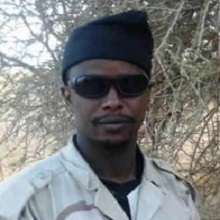
Seka Musa Baluku is the U.S. and U.N.-designated leader of the Allied Democratic Forces (ADF)—otherwise known as ISIS-DRC.“State Department Terrorist Designations of ISIS Affiliates and Leaders in the Democratic Republic of the Congo and Mozambique,” U.S. Department of State, March 10, 2021, https://www.state.gov/state-department-terrorist-designations-of-isis-affiliates-and-leaders-in-the-democratic-republic-of-the-congo-and-mozambique/. The group reportedly killed 849 civilians in 2020 and as of March 2021, displaced over 140,000 people in the Democratic Republic of Congo’s (DRC) North Kivu and Ituri provinces.“State Department Terrorist Designations of ISIS Affiliates and Leaders in the Democratic Republic of the Congo and Mozambique,” U.S. Department of State, March 10, 2021, https://www.state.gov/state-department-terrorist-designations-of-isis-affiliates-and-leaders-in-the-democratic-republic-of-the-congo-and-mozambique/; “Armed attacks kill hundreds, displace 40,000 civilians in northeast DR Congo,” United Nations High Commissioner for Refugees, March 19, 2021, https://www.unhcr.org/en-us/news/briefing/2021/3/60545e684/armed-attacks-kill-hundreds-displace-40000-civilians-northeast-dr-congo.html. The U.S. Department of the Treasury designated Baluku as a Specially Designated National on December 10, 2019, and the Department of State designated Baluku as a Specially Designated Global Terrorist (SDGT) on March 10, 2021.“State Department Terrorist Designations of ISIS Affiliates and Leaders in the Democratic Republic of the Congo and Mozambique,” U.S. Department of State, March 10, 2021, https://www.state.gov/state-department-terrorist-designations-of-isis-affiliates-and-leaders-in-the-democratic-republic-of-the-congo-and-mozambique/; “Global Magnitsky Designations,” United States Department of the Treasury, December 10, 2019, https://home.treasury.gov/policy-issues/financial-sanctions/recent-actions/20191210.
Since 1995, ISIS-DRC, also known as the Allied Democratic Forces (ADF) and Madina at Tauheed Wau Mujahedeen, has been responsible for attacks in the North Kivu and Ituri Provinces in eastern DRC.Conor Gafey, “DR Congo: What Is the ADF, the Ugandan Rebel Group Hacking Civilians to Death?,” Newsweek, December 2, 2015, https://www.newsweek.com/dr-congo-who-are-adf-ugandan-rebels-hacking-civilians-death-399889; “State Department Terrorist Designations of ISIS Affiliates and Leaders in the Democratic Republic of the Congo and Mozambique,” U.S. Department of State, March 10, 2021, https://www.state.gov/state-department-terrorist-designations-of-isis-affiliates-and-leaders-in-the-democratic-republic-of-the-congo-and-mozambique/. The group has forced thousands of civilians in the DRC to flee to neighboring Uganda. The group has also recruited children, including some as young as 10 years old, to serve as soldiers against the Ugandan government.“Treasury Sanctions Rebel Group Responsible for Targeting Civilians in The Democratic Republic of Congo,” United States Department of the Treasury, July 1, 2014, https://www.treasury.gov/press-center/press-releases/Pages/jl2449.aspx.
Baluku is a longtime member of the ADF and was originally second in command to founder Jamil Mukulu. Baluku replaced Mukulu as ADF leader sometime following the launch of Sukola I, a Congolese Army operation to combat the growing threat of the ADF, in 2014.“Seka Baluku,” United Nations Security Council, February 6, 2020, https://www.un.org/securitycouncil/content/seka-baluku. As ADF leader, Baluku instructed ADF combatants to kill civilians near population centers to divert the Congolese army away from ADF positions and also retaliate against civilians who allegedly provided information to the army about the ADF.“Letter dated 16 October 2015 from the Group of Experts extended pursuant to Security Council resolution 2198 (2015) addressed to the President of the Security Council,’ United Nations Security Council, October 16, 2015, https://www.securitycouncilreport.org/atf/cf/%7B65BFCF9B-6D27-4E9C-8CD3-CF6E4FF96FF9%7D/s_2015_797.pdf.
The ADF was sanctioned by the U.S. Department of the Treasury on July 1, 2014 and the United Nations on October 29, 2014.“Treasury Sanctions Rebel Group Responsible for Targeting Civilians in The Democratic Republic of Congo,” United States Department of the Treasury, July 1, 2014, https://www.treasury.gov/press-center/press-releases/Pages/jl2449.aspx; “ALLIED DEMOCRATIC FORCES (ADF),” United Nations Security Council, October 29, 2014, https://www.un.org/securitycouncil/sanctions/1533/materials/summaries/entity/allied-democratic-forces-%28adf%29. The U.S. Treasury Department designated Baluku, on December 10, 2019 under the Global Magnitsky sanctions program for his role in serious human rights abuse.“State Department Terrorist Designations of ISIS Affiliates and Leaders in the Democratic Republic of the Congo and Mozambique,” U.S. Department of State, March 10, 2021, https://www.state.gov/state-department-terrorist-designations-of-isis-affiliates-and-leaders-in-the-democratic-republic-of-the-congo-and-mozambique/. Although the ADF has never formally claimed allegiance to ISIS, the extremist organization has described areas under ADF influence as its “Central Africa Province.” Subsequently, in July 2019, ISIS began claiming attacks carried out by the ADF.“Congo Islamist ADF rebels kill 12 in Ebola area,” Reuters, July 23, 2019, https://www.reuters.com/article/us-congo-security/congo-islamist-adf-rebels-kill-12-in-ebola-area-idUSKCN1UI2SH.
On February 6, 2020, the U.N. Security Council included Baluku on its sanctions list. Baluku was listed for his role in directing ongoing violence against civilians, including children. Among his crimes include planning and committing the killing, maiming, rape, abduction, and forced labor of civilians within the DRC.“Seka Baluku,” United Nations Security Council, February 6, 2020, https://www.un.org/securitycouncil/content/seka-baluku.
Baluku was designated by the U.S. State Department as an SDGT on March 10, 2021, for his role in directing violent attacks resulting in the displacement of hundreds of thousands throughout the DRC.“State Department Terrorist Designations of ISIS Affiliates and Leaders in the Democratic Republic of the Congo and Mozambique,” U.S. Department of State, March 10, 2021, https://www.state.gov/state-department-terrorist-designations-of-isis-affiliates-and-leaders-in-the-democratic-republic-of-the-congo-and-mozambique/.

The U.S. Department of State designated Seka Musa Baluku as a Specially Designated Global Terrorist on March 10, 2021.“State Department Terrorist Designations of ISIS Affiliates and Leaders in the Democratic Republic of the Congo and Mozambique,” U.S. Department of State, March 10, 2021, https://www.state.gov/state-department-terrorist-designations-of-isis-affiliates-and-leaders-in-the-democratic-republic-of-the-congo-and-mozambique/.
The U.S. Department of the Treasury designated Seka Musa Baluku as a Specially Designated National on December 10, 2019.“Global Magnitsky Designations,” United States Department of the Treasury, December 10, 2019, https://home.treasury.gov/policy-issues/financial-sanctions/recent-actions/20191210.

The U.N. Security Council Sanctions Committee designates Seka Baluku on February 6, 2020.“Sanctions Committee concerning Democratic Republic of Congo Adds One Individual to Its Sanctions List,” United Nations, February 6, 2020, https://www.un.org/press/en/2020/sc14101.doc.htm.
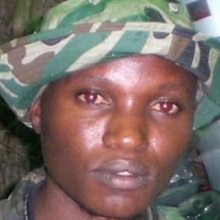
Abu Yasir Hassan is the U.S.-designated leader of Ahlu Sunnah Wal Jamaah (ASWJ)—otherwise known as ISIS-Mozambique.“State Department Terrorist Designations of ISIS Affiliates and Leaders in the Democratic Republic of the Congo and Mozambique,” U.S. Department of State, March 10, 2021, https://www.state.gov/state-department-terrorist-designations-of-isis-affiliates-and-leaders-in-the-democratic-republic-of-the-congo-and-mozambique/. The group has reportedly killed more than 1,300 civilians throughout the course of their violent insurgency and has displaced nearly 670,000 people within northern Mozambique.“State Department Terrorist Designations of ISIS Affiliates and Leaders in the Democratic Republic of the Congo and Mozambique,” U.S. Department of State, March 10, 2021, https://www.state.gov/state-department-terrorist-designations-of-isis-affiliates-and-leaders-in-the-democratic-republic-of-the-congo-and-mozambique/. The U.S. Department of State designated Hassan as a Specially Designated Global Terrorist (SDGT) on March 10, 2021.“State Department Terrorist Designations of ISIS Affiliates and Leaders in the Democratic Republic of the Congo and Mozambique,” U.S. Department of State, March 10, 2021, https://www.state.gov/state-department-terrorist-designations-of-isis-affiliates-and-leaders-in-the-democratic-republic-of-the-congo-and-mozambique/.
ISIS-Mozambique, which is locally known as ASWJ or al-Shabaab in Mozambique, is not affiliated with al-Shabaab in Somalia. The insurgent group reportedly pledged allegiance to ISIS as early as April 2018, and was acknowledged by ISIS central in August 2019.“State Department Terrorist Designations of ISIS Affiliates and Leaders in the Democratic Republic of the Congo and Mozambique,” U.S. Department of State, March 10, 2021, https://www.state.gov/state-department-terrorist-designations-of-isis-affiliates-and-leaders-in-the-democratic-republic-of-the-congo-and-mozambique/.
A Tanzanian national, Hassan has allegedly led ISIS-Mozambique since October 2017. Since March 2020, ASWJ has sporadically taken control of the port town of Mocímboa da Praia, which hosts multiple foreign energy companies taking on lucrative gas projects in the area. Although security forces were previously able to overtake the insurgents, since January 2020, the quickly growing number of jihadists has overwhelmed Mozambique’s security sector. Mozambique’s government, police, and army are poorly equipped to adequately counter the militants and have been reported to have even fled scenes of insurgent activity.Nick Fishwick, “Spreading Violence and Growing Instability Plague Northern Mozambique,” Cipher Brief, https://www.thecipherbrief.com/column_article/spreading-violence-and-growing-instability-plague-northern-mozambique; “State Department Terrorist Designations of ISIS Affiliates and Leaders in the Democratic Republic of the Congo and Mozambique,” U.S. Department of State, March 10, 2021, https://www.state.gov/state-department-terrorist-designations-of-isis-affiliates-and-leaders-in-the-democratic-republic-of-the-congo-and-mozambique/.
Hassan was designated by the U.S. State Department as an SDGT on March 10, 2021, for his role in directing large scale attacks resulting in the displacement of hundreds of thousands throughout Mozambique.“State Department Terrorist Designations of ISIS Affiliates and Leaders in the Democratic Republic of the Congo and Mozambique,” U.S. Department of State, March 10, 2021, https://www.state.gov/state-department-terrorist-designations-of-isis-affiliates-and-leaders-in-the-democratic-republic-of-the-congo-and-mozambique/.

The U.S. Department of State designated Abu Yasir Hassan as a Specially Designated Global Terrorist on March 10, 2021.“State Department Terrorist Designations of ISIS Affiliates and Leaders in the Democratic Republic of the Congo and Mozambique,” U.S. Department of State, March 10, 2021, https://www.state.gov/state-department-terrorist-designations-of-isis-affiliates-and-leaders-in-the-democratic-republic-of-the-congo-and-mozambique/.

Abu Yahya al-Jazairi was the alleged leader of Jamaat Nusrat al-Islam wal Muslimeen (JNIM) in the Emirate of Timbuktu of al-Qaeda in the Islamic Maghreb (AQIM). A veteran AQIM and JNIM military leader, al-Jazairi was killed in battle against Malian armed forces on April 6, 2020.“Letter dated 16 July 2020 from the Chair of the Security Council Committee pursuant to resolutions 1267 (1999), 1989 (2011) and 2253 (2015) concerning Islamic State in Iraq and the Levant (Da’esh), Al-Qaida and associated individuals, groups, undertakings and entities addressed to the President of the Security Council,” United Nations Security Council, July 23, 2020, https://www.securitycouncilreport.org/atf/cf/%7B65BFCF9B-6D27-4E9C-8CD3-CF6E4FF96FF9%7D/s_2020_717.pdf; Ahmed Adel, “Abd al-Rahman Talha al-Libi: First Mauritanian to lead Sahara Emirate,” The Portal-Center, July 22, 2020, http://www.theportal-center.com/2020/07/abd-al-rahman-talha-al-libi-first-mauritanian-to-lead-sahara-emirate/.
Allegedly of Algerian descent, not much else is known about al-Jazairi. Al-Jazairi’s appointment as emir of Timbuktu was unusual as JNIM’s Timbuktu emirate traditionally favors appointing leaders that share a similar ethnic background with tribes in the region. The strategy helps to enhance communal relations and promise continued support for the militant group.Mathieu Pellerin, “Armed Violence in the Sahara: Are We Moving from Jihadism to Insurgency?,” IFRI Subsaharan Africa Center, November 2019, https://www.ifri.org/sites/default/files/atoms/files/pellerin_armed_violence_sahara_2020_okes.pdf.
Al-Jazairi was the successor to U.N.-designated Djamel Okacha, the former emir of Timbuktu who was killed by French forces in northern Mali on February 21, 2019.“Letter dated 21 January 2021 from the Chair of the Security Council Committee pursuant to resolutions 1267 (1999), 1989 (2011) and 2253 (2015) concerning Islamic State in Iraq and the Levant (Da’esh), Al-Qaida and associated individuals, groups, undertakings and entities addressed to the President of the Security Council,” United Nations Security Council, February 3, 2021, https://undocs.org/pdf?symbol=en/S/2021/68; Caleb Weiss, “French Military Claims Senior JNIM Leader Killed,” Long War Journal, February 22, 2019, https://www.longwarjournal.org/archives/2019/02/french-military-claims-senior-jnim-leader-killed.php. Allegedly, at the time of Okacha’s death, AQIM’s strategy was to replace JNIM combatants and prominent figures killed in counterterrorism operations with seasoned fighters coming from Libya.“Letter dated 15 July 2019 from the Chair of the Security Council Committee pursuant to resolutions 1267 (1999), 1989 (2011) and 2253 (2015) concerning Islamic State in Iraq and the Levant (Da’esh), Al-Qaida and associated individuals, groups, undertakings and entities addressed to the President of the Security Council,” United Nations Security Council, July 15, 2019, https://undocs.org/pdf?symbol=en/S/2019/570. Al-Jazairi was killed in battle against the Malian armed forces on April 6, 2020 in Bamba, Mali and was quickly replaced by Abd al-Rahman Talha al-Libi.“Letter dated 16 July 2020 from the Chair of the Security Council Committee pursuant to resolutions 1267 (1999), 1989 (2011) and 2253 (2015) concerning Islamic State in Iraq and the Levant (Da’esh), Al-Qaida and associated individuals, groups, undertakings and entities addressed to the President of the Security Council,” United Nations Security Council, July 23, 2020, https://www.securitycouncilreport.org/atf/cf/%7B65BFCF9B-6D27-4E9C-8CD3-CF6E4FF96FF9%7D/s_2020_717.pdf; Ahmed Adel, “Abd al-Rahman Talha al-Libi: First Mauritanian to lead Sahara Emirate,” The Portal-Center, July 22, 2020, http://www.theportal-center.com/2020/07/abd-al-rahman-talha-al-libi-first-mauritanian-to-lead-sahara-emirate/.

Faruq al-Suri, better known as Samir Hijazi, is the U.S.-designated leader of Hurras al-Din (HaD).“Wanted Information that brings to justice…Faruq al-Suri,” Rewards for Justice, https://rewardsforjustice.net/english/faruq_al_suri.html. HaD has carried out over 200 attacks in Syria’s Idlib, Latakia, Hama, and Aleppo provinces, often in conjunction with other Syrian rebel factions.Aaron Y. Zelin, “Huras al-Din: The Overlooked al-Qaeda Group in Syria,” Washington Institute for Near East Policy, September 24, 2019, https://www.washingtoninstitute.org/policy-analysis/view/huras-al-din-the-overlooked-al-qaeda-group-in-syria. The group is avowedly loyal to al-Qaeda and its leadership is dominated by non-Syrian al-Qaeda veterans.“Twenty-Fourth Report of the Analytical Support and Sanctions Monitoring Team Submitted Pursuant to Resolution 2368 (2017) concerning ISIL (Da’esh), Al-Qaida and Associated Individuals and Entities,” UN Security Council, June 27, 2019, 7-9, https://undocs.org/S/2019/570; Charles Lister, “The Syria Effect: Al-Qaeda Fractures,” Hudson Institute, December 11, 2019, https://www.hudson.org/research/15533-the-syria-effect-al-qaeda-fractures. On September 12, 2019, the U.S. Department of State’s Rewards for Justice Program announced a $5 million reward for information leading to Hijazi’s capture.“Wanted Information that brings to justice…Faruq al-Suri,” Rewards for Justice, https://rewardsforjustice.net/english/faruq_al_suri.html.
A Syrian national, Hijazi allegedly traveled to Afghanistan in 1998 where he worked under Abu Musab al-Suri, one of the most prominent intellectual leaders in the global jihadist movement.“Militant Leadership Monitor,” Jamestown Foundation, October 2019, https://jamestown.org/wp-content/uploads/2019/11/October-2019_MLM.pdf?x13007. Supposedly during this period in the late 1990s, Hijazi was a senior paramilitary trainer with al-Qaeda senior leader Saif al-Adel in Afghanistan.“Wanted Information that brings to justice…Faruq al-Suri,” Rewards for Justice, https://rewardsforjustice.net/english/faruq_al_suri.html. Hijazi allegedly progressed quickly through al-Qaeda’s ranks and at some point in the year 2000 was entrusted by Osama bin Laden to take command of the Syrian members of al-Qaeda.“Militant Leadership Monitor,” Jamestown Foundation, October 2019, https://jamestown.org/wp-content/uploads/2019/11/October-2019_MLM.pdf?x13007. Hijazi then reportedly trained fighters for al-Qaeda in Iraq from 2003 until 2005.“Wanted Information that brings to justice…Faruq al-Suri,” Rewards for Justice, https://rewardsforjustice.net/english/faruq_al_suri.html. Regional scholars suspect Hijazi operated between Iraq and Syria until 2008 when he attempted to move to Lebanon. However, upon relocating, he was arrested and sentenced to five years in a Lebanese prison.“Militant Leadership Monitor,” Jamestown Foundation, October 2019, https://jamestown.org/wp-content/uploads/2019/11/October-2019_MLM.pdf?x13007.
Hijazi was detained in Lebanon from 2009 until 2013. After his release, he became the military commander for the internationally sanctioned al-Nusra Front, a role he held until 2016.“Wanted Information that brings to justice…Faruq al-Suri,” Rewards for Justice, https://rewardsforjustice.net/english/faruq_al_suri.html.
On February 27, 2018, Hijazi was named the commander of Hurras al-Din (HaD), a merger of seven hardline Syrian rebel factions including Jaysh al-Malahim, Jaysh al-Badiya, Jaysh al-Sahel, Saraya al-Sahel, Saraya Kabul, Jund al-Sharqiya, and remnants of Jund al-Aqsa.Tore Refslund Hamming and Pieter Van Ostaeyen, “The True Story of al-Qaeda’s Demise and Resurgence in Syria,” Lawfare, April 8, 2018, https://lawfareblog.com/true-story-al-qaedas-demise-and-resurgence-syria; Josko Baric, “Syrian War Daily – 28th of February 2018,” Syrian War Daily, https://syrianwardaily.com/2018/02/28/syrian-war-daily-28th-of-february-2018/. Ten more minor rebel factions joined the group in the months following its formation, all with a history of ideological and leadership ties to al-Qaeda.Aaron Y. Zelin, “Huras al-Din: The Overlooked al-Qaeda Group in Syria,” Washington Institute for Near East Policy, September 24, 2019, https://www.washingtoninstitute.org/policy-analysis/view/huras-al-din-the-overlooked-al-qaeda-group-in-syria; Charles Lister, “The Syria Effect: Al-Qaeda Fractures,” Hudson Institute, December 11, 2019, https://www.hudson.org/research/15533-the-syria-effect-al-qaeda-fractures. At least half of the group’s 700-2,500 members are foreigners.“Twenty-Fourth Report of the Analytical Support and Sanctions Monitoring Team Submitted Pursuant to Resolution 2368 (2017) concerning ISIL (Da’esh), Al-Qaida and Associated Individuals and Entities,” UN Security Council, June 27, 2019, 7-9, https://undocs.org/S/2019/570; The Best of Bad Options for Syria’s Idlib, International Crisis Group, March 14, 2019, 18, https://d2071andvip0wj.cloudfront.net/197-the-best-of-bad-options%20.pdf; Charles Lister, “The Syria Effect: Al-Qaeda Fractures,” Hudson Institute, December 11, 2019, https://www.hudson.org/research/15533-the-syria-effect-al-qaeda-fractures. HaD’s leadership is split along two ideological currents: one following the teachings of al-Qaeda scholar Abu Muhammad al-Maqdisi and the other following the Libyan cleric Jamal Ibrahim Ashityawee al-Musratti.“Hardliner Wing of ‘Hurras al-Din’ Loses Its Most Influential Figures,” Enab Baladi, July 4, 2018, https://english.enabbaladi.net/archives/2019/07/hardliner-wing-of-guardians-of-religion-loses-its-most-influential-figures/#ixzz65J3MS9o5; Twenty-Fourth Report of the Analytical Support and Sanctions Monitoring Team Submitted Pursuant to Resolution 2368 (2017) concerning ISIL (Da’esh), Al-Qaida and Associated Individuals and Entities,” U.N. Security Council, June 27, 2019, 7, https://undocs.org/S/2019/570. Both currents, however, view al-Qaeda leader Ayman al-Zawahiri as their “defining authority.”“Hardliner Wing of ‘Hurras al-Din’ Loses Its Most Influential Figures,” Enab Baladi, July 4, 2018, https://english.enabbaladi.net/archives/2019/07/hardliner-wing-of-guardians-of-religion-loses-its-most-influential-figures/#ixzz65J3MS9o5; “Twenty-Fourth Report of the Analytical Support and Sanctions Monitoring Team Submitted Pursuant to Resolution 2368 (2017) concerning ISIL (Da’esh), Al-Qaida and Associated Individuals and Entities,” U.N. Security Council, June 27, 2019, 7, https://undocs.org/S/2019/570.
The group holds no territory and largely uses small arms and light weapons such as AK-47s, mortars, and rocket-propelled grenades in its raids of Syrian regime positions.The Best of Bad Options for Syria’s Idlib, International Crisis Group, 18, March 14, 2019, https://d2071andvip0wj.cloudfront.net/197-the-best-of-bad-options%20.pdf; Aaron Y. Zelin, “Huras al-Din: The Overlooked al-Qaeda Group in Syria,” Washington Institute, September 24, 2019, https://www.washingtoninstitute.org/policy-analysis/huras-al-din-overlooked-al-qaeda-group-syria. While HaD’s core leadership and fighters are mostly defectors from the former Syrian al-Qaeda affiliate al-Nusra Front, now known as Hayat Tahrir al-Sham (HTS), the two groups have worked together to carry out combat operations against the Syrian regime.The Best of Bad Options for Syria’s Idlib, International Crisis Group, 17, March 14, 2019, https://d2071andvip0wj.cloudfront.net/197-the-best-of-bad-options%20.pdf.
On September 10, 2019, the U.S. Department of State designated Hijazi as a Specially Designated Global Terrorist for his role in HaD. On September 12, the Rewards for Justice Program announced a $5 million reward for information leading to the capture of Hijazi.“Wanted Information that brings to justice…Faruq al-Suri,” Rewards for Justice, https://rewardsforjustice.net/english/faruq_al_suri.html; “US Offers Bounty for Information on al-Qaida-Affiliated Militants in Syria,” Voice of America, September 12, 2019, https://www.voanews.com/extremism-watch/us-offers-bounty-information-al-qaida-affiliated-militants-syria.
According to the New Jersey office of Homeland Security and Preparedness, in March 2020, Hijazi encouraged supporter to remain committed to fighting on the battlefield. Additionally, he encouraged fighters to undertake guerilla warfare against Syrian forces and their Iranian and Russian allies. Despite advocating for continued attacks, he did not provide new tactics to attack the United States or specific targets.“Hurras al-Din,” New Jersey Office of Homeland Security and Preparedness, March 18, 2020, https://static1.squarespace.com/static/54d79f88e4b0db3478a04405/t/5ea72993f0032f3cbfb095c0/1588013460911/Hurras+al-Din.pdf.
Given Hijazi’s leadership position in HaD as well as his role in promoting and inciting terrorist acts in support of al-Qaeda, on May 30, 2022, the Council of the European Union added Hijazi to the EU sanctions list.“EU fight against terrorism: one group and two individuals added to the EU sanctions list,” Council of the European Union, May 30, 2022, https://www.consilium.europa.eu/en/press/press-releases/2022/05/30/eu-fight-against-terrorism-one-group-and-two-individuals-added-to-the-eu-sanctions-list/.

The U.S. Department of State designated Faruq al-Suri (a.k.a. Samir Hijazi) as a Specially Designated Global Terrorist on September 10, 2019.“Designation of Faruq al-Suri as a Specially Designated Global Terrorist,” Federal Register, September 19, 2019, https://www.federalregister.gov/documents/2019/09/19/2019-20277/designation-of-faruq-al-suri-as-a-specially-designated-global-terrorist.
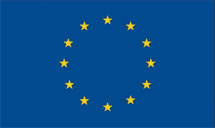
On May 30, 2022, the Council of the European Union added Faruq al-Suri to the EU sanctions list.“EU fight against terrorism: one group and two individuals added to the EU sanctions list,” Council of the European Union, May 30, 2022, https://www.consilium.europa.eu/en/press/press-releases/2022/05/30/eu-fight-against-terrorism-one-group-and-two-individuals-added-to-the-eu-sanctions-list/.

Abd al-Rahman Talha al-Libi is a senior leader of Jamaat Nusrat al-Islam wal Muslimeen (JNIM)—a Sahel-region affiliate of al-Qaeda in the Islamic Maghreb (AQIM)—and serves as the shadow governor of Timbuktu.Caleb Weiss, “AQIM’S IMPERIAL PLAYBOOK,” Combating Terrorism Center at West Point, April 2022, https://ctc.westpoint.edu/wp-content/uploads/2022/04/AQIMs-Imperial-Playbook.pdf. The Shura Council of AQIM reportedly appointed al-Libi following the death of Abu Yahya al-Jazairi on April 6, 2020.“Letter dated 16 July 2020 from the Chair of the Security Council Committee pursuant to resolutions 1267 (1999), 1989 (2011) and 2253 (2015) concerning Islamic State in Iraq and the Levant (Da’esh), Al-Qaida and associated individuals, groups, undertakings and entities addressed to the President of the Security Council,” United Nations Security Council, July 23, 2020, https://www.securitycouncilreport.org/atf/cf/%7B65BFCF9B-6D27-4E9C-8CD3-CF6E4FF96FF9%7D/s_2020_717.pdf; Ahmed Adel, “Abd al-Rahman Talha al-Libi: First Mauritanian to lead Sahara Emirate,” The Portal-Center, July 22, 2020, http://www.theportal-center.com/2020/07/abd-al-rahman-talha-al-libi-first-mauritanian-to-lead-sahara-emirate/.
Reportedly of Mauritanian heritage,Caleb Weiss, “AQIM’S IMPERIAL PLAYBOOK,” Combating Terrorism Center at West Point, April 2022, https://ctc.westpoint.edu/wp-content/uploads/2022/04/AQIMs-Imperial-Playbook.pdf. al-Libi was born in Mali and his family relocated to Libya when he was a child. In 2006, al-Libi returned to Mali to serve as a recruiter for al-Qaeda. His activities were not limited to Mali, as he continued his recruitment efforts throughout Algeria, Niger, Burkina Faso, and Nigeria.“Orphans of the Sahara | Rebellion (Episode 2),” YouTube video, 28:00, from a documentary filmed by Al Jazeera that was published on the streaming site on January 17, 2014, posted by “Al Jazeera English,” January 17, 2014, https://www.youtube.com/watch?v=cbGUCQ1oocg&ab_channel=AlJazeeraEnglish; Alassane Samake, “Mali: Antiterroriste : Sur la piste de Talha Al-Liby de la Katiba Al Fourghan,” Mali Actu, May 24, 2018, https://maliactu.net/mali-antiterroriste-sur-la-piste-de-talha-al-liby-de-la-katiba-al-fourghan/.
Al-Libi served as the head of Timbuktu’s Islamic police—a group of Islamist militants and non-state actors that sought to enforce sharia law throughout the Malian city. The group gained notoriety in 2012 for their activities, such as banning music and stoning alleged adulterers.“Veteran jihadist seeks return of sharia law in north Mali: video,” Reuters, January 7, 2016, https://www.reuters.com/article/us-mali-violence/veteran-jihadist-seeks-return-of-sharia-law-in-north-mali-video-idUSKBN0UM00320160108. However, other reports have claimed Al-Hassan Ag Abdoul Aziz Ag Mohamed Ag Mahmoud, a member of Ansar al-Dine, served as the “de facto” chief of the Islamic police during the same period.“The Prosecutor v. Al Hassan Ag Abdoul Aziz Ag Mohamed Ag Mahmoud,” International Criminal Court, February 2022, https://www.icc-cpi.int/sites/default/files/CaseInformationSheets/al-hassanEng.pdf. Al-Libi began serving as the leader of Katibat al-Furqan in 2013. The brigade is based in the Timbuktu region and is a sub-command of AQIM. While leading Katibat al-Furqan, al-Libi accused France of “seeking to create tribal conflict after the failure of its intervention in northern Mali.”Andrew McGregor, “Anarchy in Azawad: A Guide to Non-State Armed Groups in Northern Mali,” Jamestown Foundation, January 27, 2017, https://www.refworld.org/docid/589d9f394.html.
As the leader of Katibat al-Furqan, al-Libi sought to cultivate coalitions with the Arabs and the ethnic Tuareg—particularly the Awlad Ich and Awlad Idriss tribes—in the Timbuktu region. In 2015, JNIM released a video in which al-Libi openly addressed members of the Awlad Ich tribe, asking them to join AQIM forces to rebel against French forces in the area.Alex Thurston, “Timbuktu: A Laboratory for Jihadists Experimenting with Politics,” War on the Rocks, January 23, 2019, https://warontherocks.com/2019/01/timbuktu-a-laboratory-for-jihadists-experimenting-with-politics/. Additionally, on January 7, 2016, al-Libi appeared in a video called “From the Depths of the Sahara” that was released by AQIM’s Al Andalus Media Productions. In the video, al-Libi called for the return to sharia law in north Mali.“Veteran jihadist seeks return of sharia law in north Mali: video,” Reuters, January 7, 2016, https://www.reuters.com/article/us-mali-violence/veteran-jihadist-seeks-return-of-sharia-law-in-north-mali-video-idUSKBN0UM00320160108.
It is reported that al-Libi was quickly named the successor to Abu Yahya al-Jazairi—the former leader of the Timbuktu emirate of JNIM—when al-Jazairi was killed during an attack against Malian armed forces in Bamba, Mali on April 6, 2020.Wassim Nasr, “ISIS in Africa: The End of the “Sahel Exception,” Newlines Institute, June 2, 2020, https://newlinesinstitute.org/isis/isis-in-africa-the-end-of-the-sahel-exception/. Although al-Libi holds a prominent position within both JNIM and AQIM, al-Libi is subordinate to JNIM’s overall leader, the U.S.- and U.N.-designated Iyad Ag Ghaly.“ANSAR EDDINE,” United Nations Security Council, February 3, 2015, https://www.un.org/securitycouncil/sanctions/1267/aq_sanctions_list/summaries/entity/ansar-eddine.
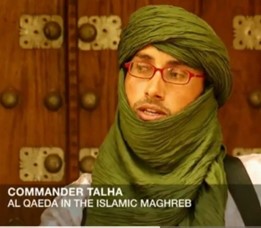
Extremists: Their Words. Their Actions.
Fact:
On April 3, 2017, the day Vladimir Putin was due to visit the city, a suicide bombing was carried out in the St. Petersburg metro, killing 15 people and injuring 64. An al-Qaeda affiliate, Imam Shamil Battalion, claimed responsibility.
Get the latest news on extremism and counter-extremism delivered to your inbox.